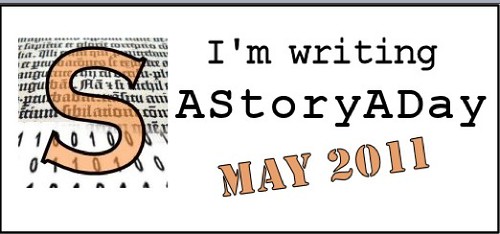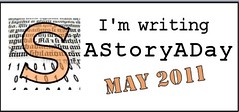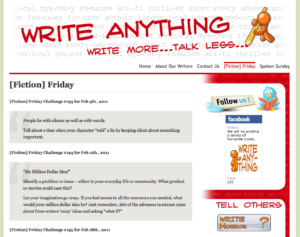
Recently, naturalists announced that the sloth — the animal whose name has become a synonym for laziness — is actually a lot more active than previously thought. It turns out that when we cage them and observe them, we don’t see what’s really going on in the sloth’s world.
Today I have a great guest post for you from Susan Daffron, a writer and publishing consultant. She shows us how, as writers, the times when our minds are most fertile and active, might — to an observer — look like the times when we are being, well, slothful. She shows us that productivity for writers makes its own demands, and how to succeed by embracing that.
(You can read more about Susan’s upcoming publishing conference at the end of the article).
Then, leave your comments about how you will jump-start your creativity at the end of the article and you’ll be entered to win a copy of Rory’s Story Cubes – a great creativity booster in a box!
As a writer, I’ve gone through periods of extreme productivity and extreme sloth. Although I have written 12 books, last year in 2010, I released exactly zero.
For a variety of personal and business-related reasons, I went through a creative burnout like nothing I’d ever experienced before. Writing, which had always been fairly easy for me in the past, was suddenly extremely difficult.
Climbing Out Of A Slump
I also discovered that the less I wrote, the less I wanted to write. Talk about a lack of productivity!
I spent some time looking back at what happened during my creative slump. I realized my lack of writing productivity stemmed from three issues:
1. Lack of ideas. The stressful events I experienced caused my creativity to simply shut down. To jumpstart my mind, I surfed to online writing sites (like StoryaDay.org!), used random-word and writing-prompt generators, and started talking to my husband about my various writing thoughts for outside feedback and support.
2. Lack of motivation. As noted, a bunch of things that happened last year brought me down. Creativity does not flow when you’re depressed. I decided to make a commitment to exercising and started reading more inspirational materials on creativity, writing, and life balance. (The library is full of wonderful FREE books just waiting to be read!)
3. Lack of time. You’ve read it before, but I’ll say it again: you have time to write if you make time to write. During my slump, I wasn’t working smart. Part of me already knew it, but I had to forcibly reacquaint myself with the methods I’d used in the past to carve out real productive writing time. I opted to make a commitment to write every morning and also started thinking up ideas for articles and posts the night before. “Sleeping on” a writing idea really works!
And The Winner Is…
I’m happy to report that the old adage “writers write” is true. Since I got my writing mojo back again, I have been writing regularly. I have my next book completely outlined and 19 case studies/interviews input so far. I’ll be speaking at a conference this summer and plan to release the book in time for it. (Deadlines help motivation too!)
If you’re a writer who wants to publish, you can get inspiration and learn more about the book publishing process at the Self-Publishers Online Conference. The third annual event is May 10-12, 2011 (http://www.SelfPublishersOnlineConference.com) Use the code SusanSentMe and get 10% off your registration!
Susan Daffron, aka The Book Consultant (http://www.TheBookConsultant.com) owns a book and software publishing company. She spends most of her time writing, laying out books in InDesign, or taking her five dogs out for romps in the forest. She also teaches people how to write and publish profitable client-attracting books and puts on the Self-Publishers Online conference (http://www.SelfPublishersOnlineConference.com) every May.
Win! Win! Win!
Leave a comment with your best tips for jump-starting creativity and win a copy of Rory’s Story Cubes, a wonderful dice game that doubles as a story-telling tool. Roll the dice and make a story from the extremely cute images on the dice. Brilliant for days when you’re stalled and need to regain your mojo.
Special thanks to Rory O’Connor and the lovely folks at Gamewright Games for donating this prize.










![[Write On Wednesdays] Escape](https://storyaday.org/wp-content/uploads/2011/03/mir.gif)




![[Markets for Writers] Postcard Shorts](https://storyaday.org/wp-content/uploads/2011/03/postcardshorts.png)



![[Markets for Writers] Six Sentences](https://storyaday.org/wp-content/uploads/2011/02/Screen-shot-2011-02-08-at-12.30.21-PM.png)


![[Markets For Writers] Ploughshares Emerging Fiction Writers Contest](https://storyaday.org/wp-content/uploads/2011/02/Screen-shot-2011-02-06-at-1.18.13-PM.png)

![[Markets for Writers] Fiction Fridays at Write Anything](https://storyaday.org/wp-content/uploads/2011/02/Screen-shot-2011-02-08-at-12.23.24-PM.png)



![[Writers’ Markets] EveryDay Fiction](https://storyaday.org/wp-content/uploads/2011/02/Screen-shot-2011-02-06-at-1.12.43-PM-1200x771.png)
